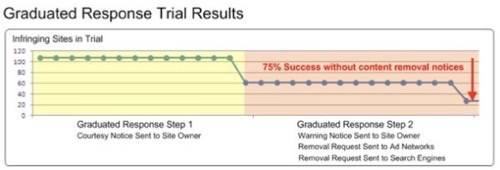When users first began to share music online, the music label’s first reaction was to sue them. While this did little to deter music sharing, it ruined the public’s opinion of these labels. Given how easy it is to copy and share text online, the newspaper industry currently faces similar problems, but instead of just sharing the content with their friends, a lot of sites simply appropriate a paper’s articles – often in order to sell advertising next to the pirated text. A new study from Attributor, however, shows that news organizations have more effective means of fighting these pirates than suing them.

During a five-month trial the company conducted earlier this year, Attributor identified more than 400,000 unlicensed copies of 70,101 articles on about 45,000 sites, including stories from national and local newspapers. Attributor then randomly selected 107 sites from this group that hosted full copies of 10 or more texts in a 30-day period (Attributor defines full copies as texts that contain 80% or more of the original articles).

The idea here, as the company’s CEO Jim Pitkow told us last week, was to test whether it would be possible to reach out to these site owners and get them to either take the content down or license it without having to resort to suing them immediately. Attributor set up a two-step gradual response process, where site owners were first contacted directly and simply asked to take the pirated content down. Then, if these site owners did not react, Attributor sent a second warning notice to the site owners. In addition, the company also contacted both the advertising networks that hosted ads on these sites and the major search engines? that included these sites in their index and asked these to block them from their services.
Attributor gave site owners two weeks to respond to both messages. At the end of this process, 75% of copying sites agreed to either take the content down voluntarily or to pursue licensing agreements.
For more background information, have a look at last December’s study (PDF) about pirated newspaper content from the Fair Syndication Consortium.
It’s interesting to see how effective Attributor’s efforts were – even without resorting to legal actions and sending content removal notices to hosting companies. By getting the advertising companies to take their ads down from the offending sites, the pirates no longer had an incentive for keeping the content on their sites.










